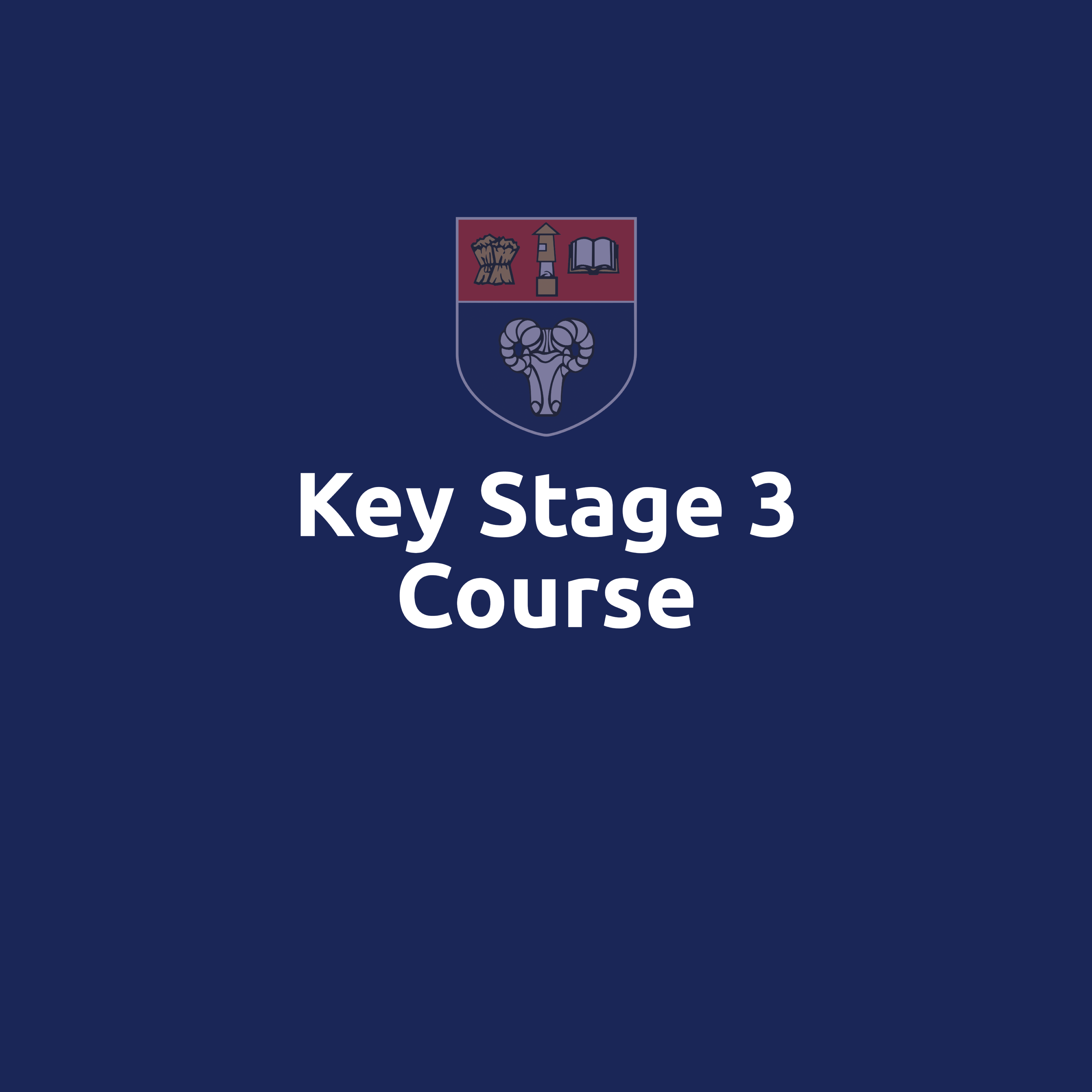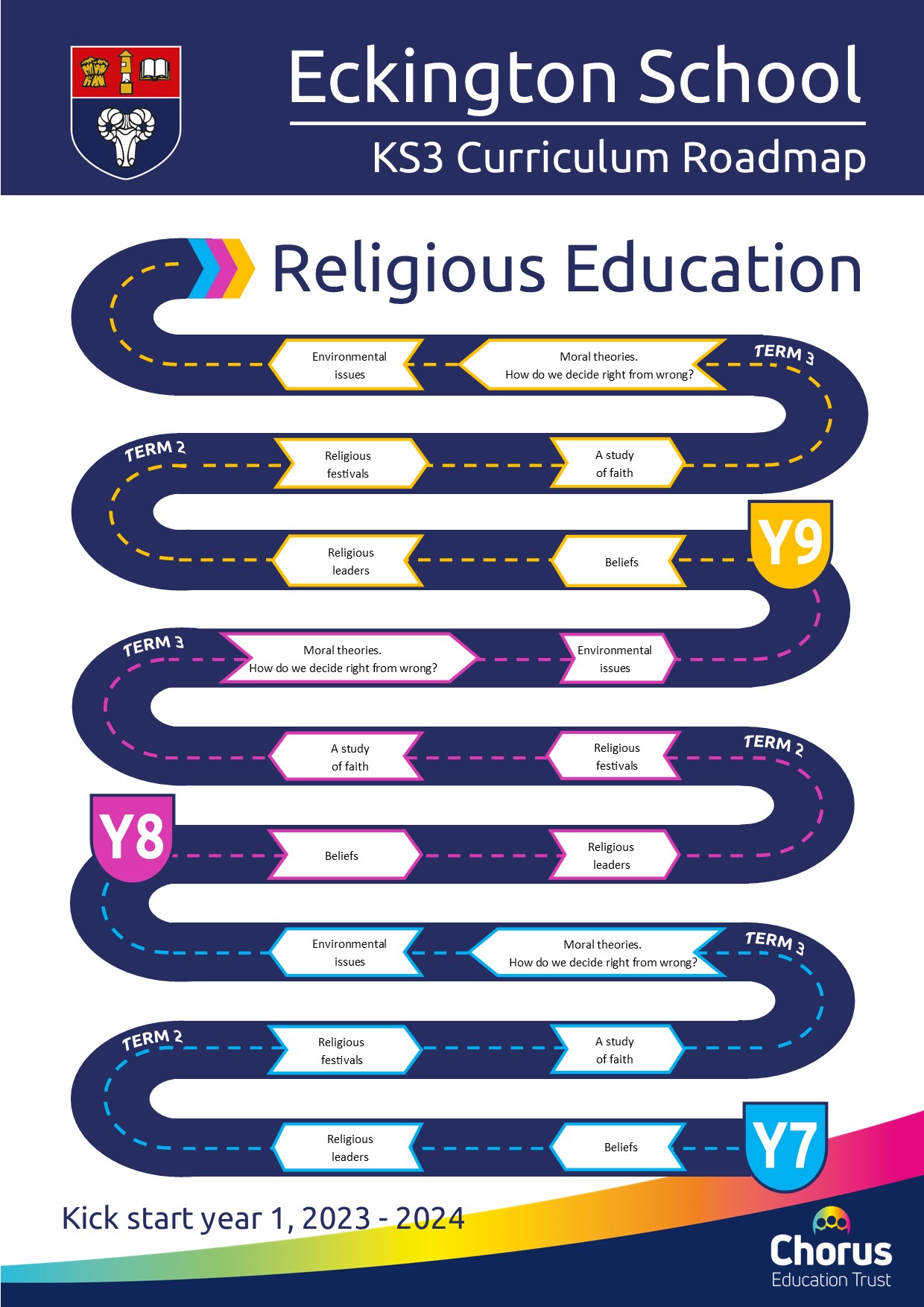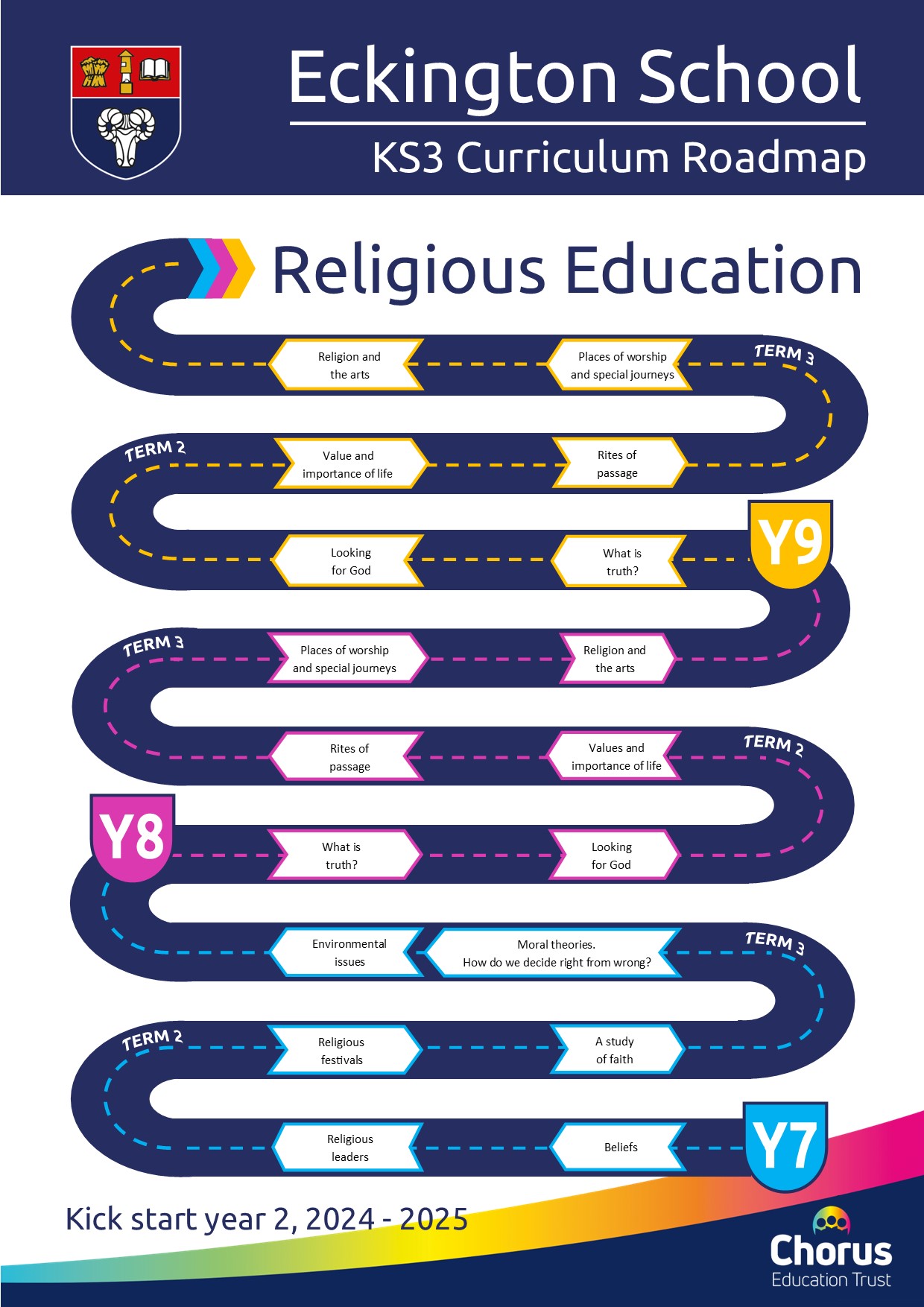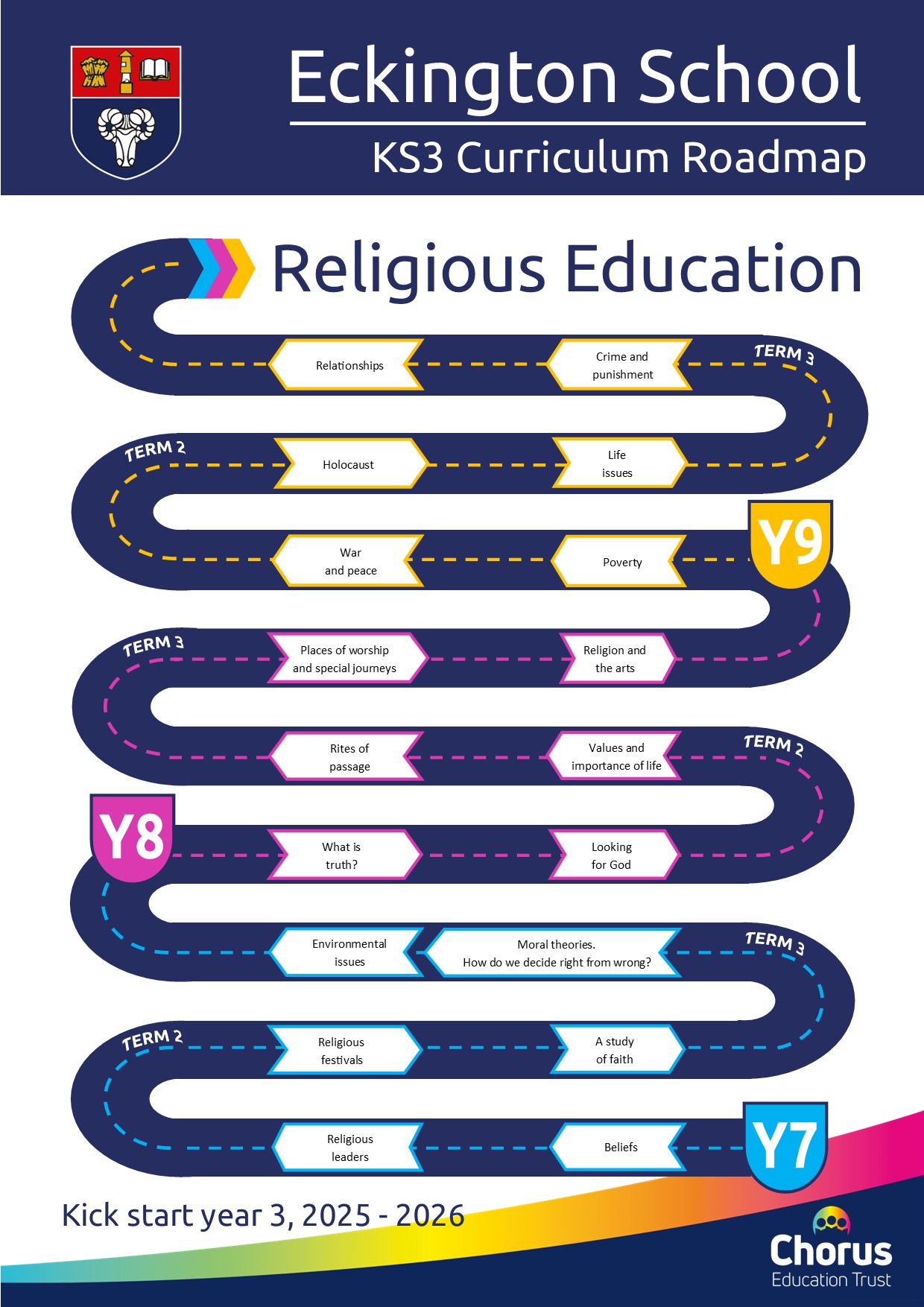Courses
We offer a broad and balanced curriculum, for:
Click the appropriate button below to find the details for each subject offered in each key stage.
Further details of our curriculum are available on the curriculum page.

Overview
Religious Education
Introduction
Eckington School's Religious Education Department aims to engage, inspire, challenge and encourage students, equipping them with the knowledge and skills to answer challenging questions. Religious education contributes significantly to developing students' cultural awareness and enables them to ask deep and often searching questions about their own faith and beliefs and the belief, faith and opinion of others regarding contemporary moral issues. Students will also deepen their understanding of God and the beliefs and practices of the world’s major faiths. The teaching of religious education helps students to make clear links between the beliefs, practices and value systems of various faiths studied. The religious education curriculum at Eckington is designed to help students develop responsibility and respect for all aspects of diversity and belief, whether that is social, cultural and religious, and to prepare students well for life in modern Britain.
Course Leader
B JEssop
Curriculum
Curriculum roadmap, kick start year 1, 2023-24
Curriculum roadmap, kick start year 2, 2024-25
Curriculum roadmap, kick start year 3, 2025-26
Note: parents have the right to withdraw their children from religious education and/or collective worship. Further information and a copy of the form to complete in order to request withdrawal is available in the RE withdrawal application form (www.chorustrust.org/policies).
Skills and requirements
Key concepts
The main concepts that religious education at Eckington aim to promote are:
- Personal growth: students will be able to develop compassion and empathy.
- Stewardship: students will caring and considerate for the world we live in.
- Respect: students will show tolerance and respect for different beliefs, opinions and cultures.
- Asking and answering big questions: students can communicate effectively their views on some of the key philosophical questions covered within religious education and listen with respect to others.
- Morality: students explore key moral issues and show understanding of right and wrong, accepting rules and boundaries.
- Enrichment: students will be given the opportunities to enhance their spiritual, moral, social and cultural development.






